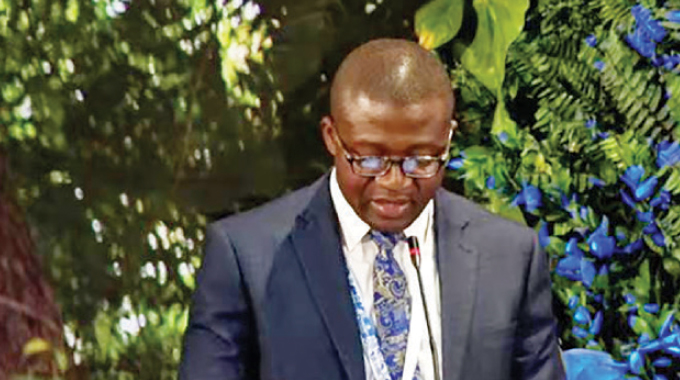Zimbabwe seeks to address environmental issues through NDS1

Oliver Kazunga, Senior Business Reporter
ZIMBABWE remains committed to the achievement of the Sustainable Development Goals and through the National Development Strategy 1 (NDS 1) the country seeks to address environmental issues that have emerged since the turn of the century.
Environment, Climate, Tourism and Hospitality Industry said this on Monday at the Fifth Session of the United Nations Environment Assembly (UNEA 5.2) that ended in Nairobi, Kenya yesterday.
“Our generation is facing triple environmental challenges of biodiversity loss, climate change and pollution since the turn of the century.
“To move towards the achievement of the Sustainable Development Goals, we have developed our National Development Strategy for the period 2021 to 2025 and one of our nine pillars is to optimise the use of natural resources, clean energy, ecosystems restoration, waste repurposing and pollution abatement,” he said.
Minister Ndlovu said some of the programmes Zimbabwe was implementing to abate the above concerns included the monthly national clean-up programme, an accelerated national tree planting programme, and the restoration of degraded wetlands.
He said the monthly national clean-up programme was led by President Mnangagwa hence Zimbabwe’s support towards an international legally binding global agreement on plastic pollution.
In addition to an accelerated national tree planting programme, Zimbabwe would next month launch the country’s first ever Forest Policy aimed at halting deforestation and intensifying reforestation.
Minister Ndlovu said the Government was also implementing an Integrated Solid Waste Management Plan to reduce solid waste management including sustainable consumption and production.
“Through circular approaches, we are promoting recycling, remaking, remanufacturing and repurposing of waste; and implementation of the One Health Project which links the environment, animals and human health through the whole of Government approach.
“We are also implementing various projects identified in our Nationally Determined Contributions in response to the climate change crisis; additionally, our Low Emission Development Strategy sets us on a path to significant reduction in our carbon footprint by mid-century,” he said.
Minister Ndlovu reiterated that Zimbabwe was committed to the implementation of the agreed UNEA 5.2 decisions and resolutions within national context and circumstances.
“Zimbabwe cannot achieve these Sustainable Development Goals alone, therefore we call upon the international community and the United Nations for enhanced cooperation and support to implement these strategies as we address the environmental challenges we face today.
“Capacity building and strengthening is required for developing countries to deal with emerging environmental issues such as electronic and hazardous waste to avoid us becoming a dumping ground.
“Co-operation and multilateralism are critical now more that ever before for us to prevail over these challenges,” he said. — @KazungaOliver











Comments